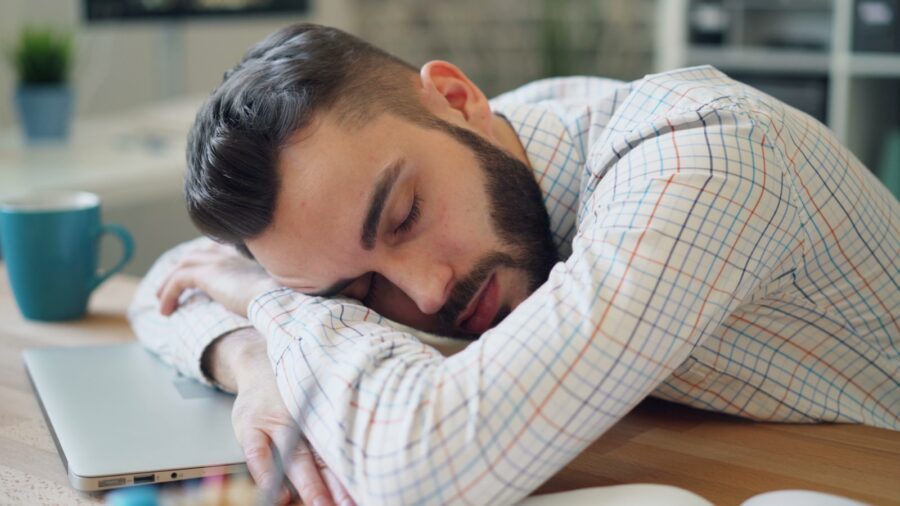Forget coffee breaks — British workers are opting for nap breaks, with a new survey revealing that 70% of employees admit to sneaking in a snooze during work hours. And where’s the favourite spot for a quick kip? The sofa.
A study by retailer Sofa Club found that nearly half of workplace nappers prefer the sofa over the bed, and afternoons are the most popular time for a quick rest.
The Sweet Spot for Power Naps
Short naps, particularly those between 16 and 30 minutes, were the most common, a duration that British personal trainer Alasdair Nicoll calls ideal for an energy boost. Nicoll, an expert in fitness recovery, said the benefits of a well-timed nap shouldn’t be underestimated.
“Napping can be beneficial for recovery, as it allows the body to rest, repair and replenish energy levels,” he said. “Short naps, typically between 10 to 30 minutes, are most effective for a quick energy boost without entering deep sleep, which can leave you feeling groggy.”
But he warned against napping for too long. “Naps longer than 90 minutes can interfere with nighttime sleep, so it’s important to find a balance that doesn’t disrupt your overall sleep routine.”
Napping to Boost Productivity?
While many workers may feel guilty about grabbing a few extra minutes of shut-eye, there is growing evidence that power naps could actually improve workplace performance.
NASA research found that a 40-minute nap can boost productivity by 34%, while other studies have linked short naps to improved memory, alertness and creativity.
Burnout and disengagement remain significant issues, with a 2023 Global Workplace Report by Gallup revealing that disengaged and burned-out employees are costing the global economy 9% of GDP. With three-quarters of workers still not properly engaged in their roles, experts argue that allowing brief naps could help tackle fatigue and improve focus.
The Sofa vs. the Bed Debate
While some might be tempted to retreat to their bedroom for a midday snooze, Sofa Club’s head buyer, Monika Puccio, suggests the sofa is actually the perfect compromise.
“The sofa is inviting enough for a quick restorative rest without lulling employees into a deep sleep that can oftentimes happen if they get into bed,” she said.
“Employee frame of mind and mental wellbeing are vital to their overall ability to work and to reduce their risk of burnout. Taking time to listen to their body can oftentimes prove beneficial in sustaining more long-term focus, the ability to be more creative and helping to perform at their best ability.”
A Workplace Nap Revolution?
With remote and hybrid working making it easier than ever for employees to sneak in a quick nap, the question remains: should workplaces start officially embracing nap culture?
Some companies, particularly in tech, have already introduced nap pods, and with research continuing to show the benefits of a well-timed snooze, the humble power nap may soon become a productivity tool rather than a workplace secret.


